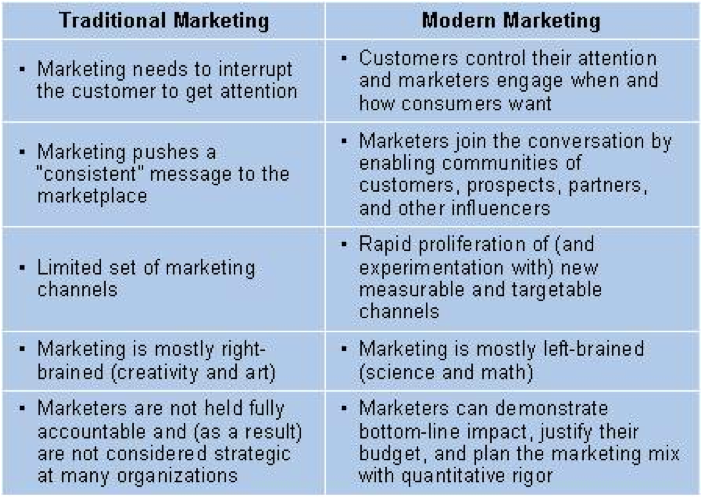 I'm thrilled to announce that Jon Miller, VP Marketing, will be our guest speaker Tuesday, October 16, 2012 at our Digital Leaders Cocktail Hour [registration is free!] at our office in San Francisco, CA. Jon will present best practices for B2B marketing success, and talk about how to build a great career in digital marketing. We'll also mix and mingle over drinks with the best and brightest in digital marketing. Please reserve your seat now and join us.
I'm thrilled to announce that Jon Miller, VP Marketing, will be our guest speaker Tuesday, October 16, 2012 at our Digital Leaders Cocktail Hour [registration is free!] at our office in San Francisco, CA. Jon will present best practices for B2B marketing success, and talk about how to build a great career in digital marketing. We'll also mix and mingle over drinks with the best and brightest in digital marketing. Please reserve your seat now and join us.
Jon leads strategy and execution for all aspects of Marketo's thought leadership and content marketing programs. He is executive editor of the popular Marketo blog, Modern B2B Marketing, and author of the comprehensive handbook, The Definitive Guide to Marketing Metrics and Analytics. Jon holds a bachelor’s degree in physics from Harvard College and has an MBA from the Stanford Graduate School of Business.
1. What is modern B2B marketing?
As I wrote way back in 2007, the core tenants of Modern B2B Marketing is that modern marketers:
- Know that customers control their attention and that marketers should engage when and how the customer wants
- Create leverage by enabling and nurturing a community of customers, prospects, partners, and other influencers
- Are left-brained (math and science over creativity and art)
- Are accountable – and more influential as a result
2. Why is it important for B2B marketers to use marketing automation and adopt a modern approach to their marketing?
If you ask the VP Sales about their system of record, you’ll hear about CRM. If you ask the CFO, you’ll hear about ERP. And you’ll get answers from the VP Support, VP Human Resources, and almost every other department in the enterprise.
But if you ask the CMO, you’ll hear crickets…. or something about a hodgepodge collection of spreadsheets and cobbled-on features to CRM.
The need for marketing departments to have a platform and system of record “of their own” is driving modern marketers to adopt marketing software – and especially marketing automation – at an accelerating rate. And these investments can deliver amazing ROI.
Consider this: The Marketo Benchmark on Revenue Performance (Sept 15, 2012) found that companies that use marketing automation source more pipeline from marketing, have more productive sales reps, and experience better revenue attainment.
3. What are the most common mistakes B2B marketers make?
It’s a mistake to take the responses to any campaign and call them leads. Downloading your paper, watching your demo or signing up for your Webinar doesn’t make someone a lead. Usually, these respondents are in the prebuying cycle and are just looking for information or researching. Without lead scoring to find the true leads, and lead nurturing to develop relationships with the rest, marketers are doomed to inefficient lead generation.
Second, marketers sometimes think that they’re doing lead nurturing by sending their contacts a monthly newsletter and an occasional Webinar invite. This is not lead nurturing; successful nurturing needs to be a personalized process for building individual relationships over time by (a) staying in the front of prospects’ minds with relevant, useful information and (b) watching and listening to each prospect and reacting in an appropriate way to accelerate his or her buying cycle with appropriate responses.
Third (and this is a bit self-serving but true nonetheless) it’s a mistake to try to implement modern demand-generation processes without marketing automation. You simply can’t keep track of all the appropriate activities, scores and next steps for each lead without technology to help — and it’s much cheaper to buy software to automate these processes than to hire people to manage it manually.
[wp_bannerize group="event"]
4. For marketers just getting started in marketing automation, where should they begin?
Most categories of enterprise software are “all-or-nothing propositions” that require you to fully implement the new system, transforming your processes completely. But marketing automation is different. Marketing automation can deliver fast results – but then requires ongoing usage and adapting business processes to get full benefit. The most successful users of marketing automation have a big vision for what they want to do, but deliver fast value and then evolve from there to drive maximum value.
In other words, go for the quick wins. Often, this is in a basic Lead Recycling strategy, or basic lead scoring to help prioritize sales time on the hottest leads and opportunities.
5. Where do you see the marketing automation industry headed in the next 5 years?
One of the biggest changes is that marketing automation is no longer so email-centric. Email is still important, but increasingly it’s just one of many channels used for developing relationships with leads.
For example, social is increasingly important. If you “Like” Marketo on Facebook and I can get my status updates to show up in your newsfeed, then I am nurturing the relationship – probably even more effectively than I would over email. The same is true for your LinkedIn today, Pinterest account, or any other channel where people can follow your brand.
On the lead scoring side, it’s no longer confined to behaviors just on the corporate website. What you tweet and who you follow can be important buying signs, just like visiting a pricing page.
